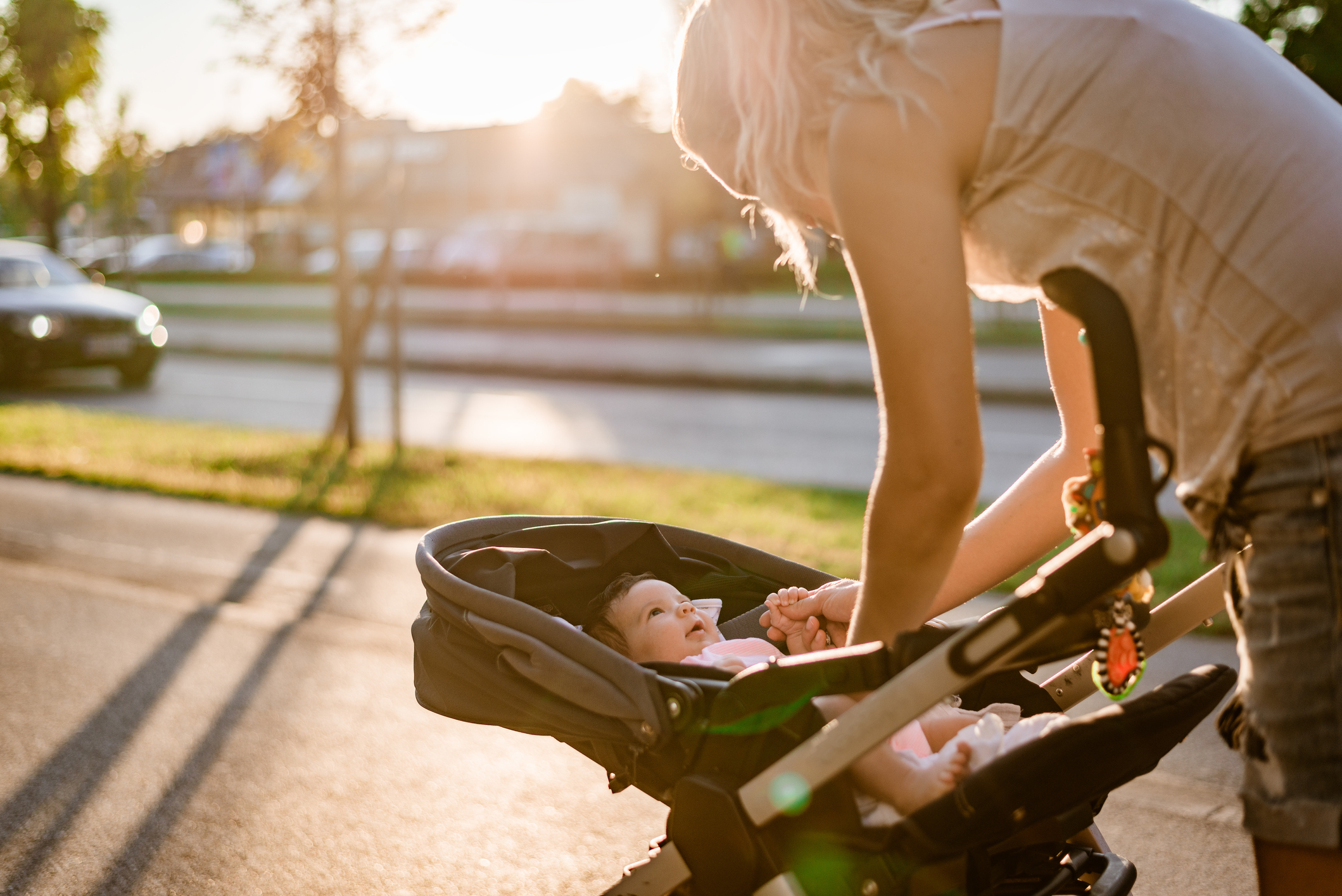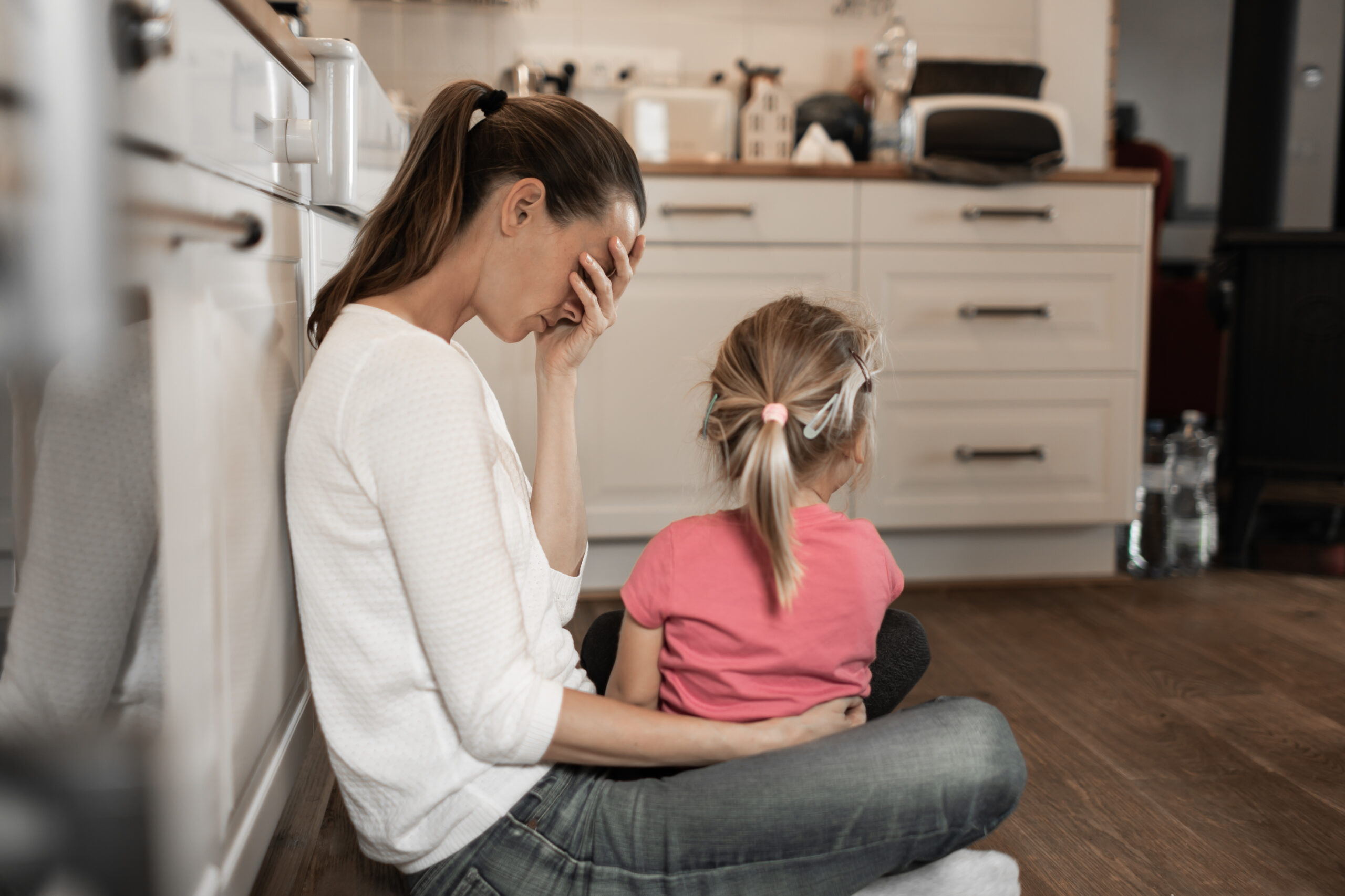I handed my mom the notebook with neatly written, detailed notes. “In here,” I said, “is everything you need. Meal and nap schedule. Where to find diapers and emergency supplies. You name it.” Her eyes skimmed the pages, and I could tell she seemed more overwhelmed than she did when she walked through the door. She and my dad had driven six hours to stay with our 2-year-old while my husband and I took a short trip to celebrate our second pregnancy. But later, I noticed my mom at the kitchen table, notebook spread open before her as she tilted her reading glasses over the pages. When she looked up, she nodded. “This is really helpful,” she said. And I knew she meant it.
It’s normal to feel some anxiety when thinking about putting your child in someone else’s care. Our instincts are to protect and nurture, so it goes against our wiring. But we can turn our nervousness around by flexing our mom muscles before leaving our little ones. Having at least one of these 5 strengths might make trusting others to watch your kids easier.
It’s normal to feel some anxiety when thinking about putting your child in someone else’s care. Click To Tweet1. Research Muscle
“Hi, I’m thinking about hiring Mandy as a babysitter,” I said to the woman on the other end of the line. “Can you tell me what she was like with your children?” I called both of Mandy’s references. I then invited Mandy for an in-person interview to see how she’d do with my kids. I’m happy to report she passed with flying colors.
Before we decide on how long to nurse or what type of formula to use, we do our research. We talk to people: family, friends, doctors. We read books and websites. We want to ensure we’re making the best choices for our children. So, it makes sense that when trusting others to watch your kids, we use this same skill.
2. Communication Muscle
Leaving my baby with my friend for an hour to run a quick errand stirred up a lot of emotion. I’d never been without him. But my friend had a baby the same age and we hung out a lot. She knew my routine, my hang-ups, and my worries well. “Just go,” she said. And I trusted her.
But leaving for more than an hour requires additional communication, especially with someone who doesn’t know the ins and outs of my daily life. It’s important to put information down on paper: sleeping schedules, acceptable foods, emergency plans, entertainment ideas, and how to reach me. Communicating at this level puts my mind more at ease.
3. Problem-Solving Muscle
“Let me show you,” I told Mandy, the babysitter. I had an emergency drawer stocked with EpiPens and an infographic on signs of anaphylaxis. I put a potato on the counter and, using an expired EpiPen, demonstrated how to administer epinephrine. Then Mandy practiced with another one. I worried whether she’d be able to save my daughter’s life if my child had an allergic reaction. In order to trust a babysitter, I needed to see her stab the potato with confidence.
I’m less worried about looking overzealous than I am about making sure my babysitter knows how to handle problems whether they’re big ones like first aid or little ones like how to change a diaper. If the babysitter can confidently address difficulties, I can trust her and leave.
4. Organizational Muscle
“Diapers and wipes are kept here,” I said, pointing to a basket beneath the changing table. My mom nodded, then followed me to the kitchen. I made sure she knew where I kept everything, including healthy snacks, before I left.
Because we have a good relationship, I trusted my mom with my baby, but it’s never easy to leave. Staying organized and making sure my mom could find things she needed gave me more peace of mind. Knowing where I kept the Baby Mum-Mums also made it less likely she’d hand him a Pop-Tart if he cried.
5. Planning Muscle
“Toddler playgroup at the family center in the morning,” I thought. “Then we’ll have lunch and he’ll take a nap. After that, we’ll meet up with Cara and her son for a stroll to the playground.” Having a plan for the day always made me feel excited and ready for the hours ahead with my child. He’d get social interaction, nourishment, and rest.
Preparing the hours my child would be with a caregiver worked the same way. Being able to hand over a list of activities or a stack of games helped reassure me that my child would get the attention and care he needed while I was gone. Knowing the caregiver will follow through with the same routine and plans after you’ve left might make trusting others to watch your kids a bit easier too.
Is there a certain age when trusting others to watch your kids gets easier?










